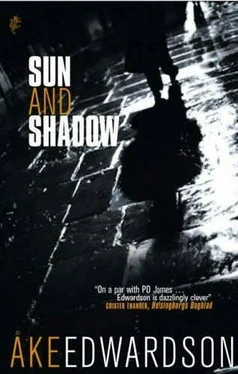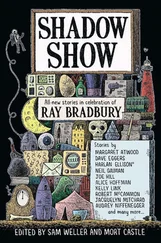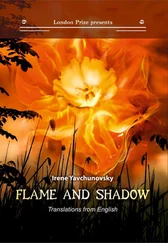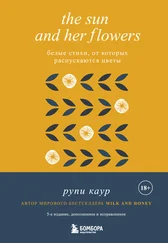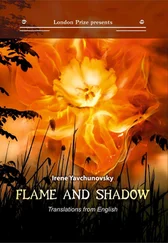The stench was awful, but he’d tried to prepare himself for that, and it helped. He breathed it for a couple of seconds, then took out a handkerchief and pressed it over his nose and mouth.
Music was thundering through all the rooms. He couldn’t be sure where it was coming from. The volume wasn’t all that high, but it was very intrusive even so.
It sounded like something from another world. He’d never heard anything like it. I’ve lived a sheltered life, he thought.
The guitar was grinding like a mill wheel, as did the bass, the drums… Winter was reminded of a concrete mixer. Suddenly: a voice, hardly human, a high falsetto hissing noise. No discernible words. The drummer seemed to be having an epileptic fit.
The music was coming from a room directly ahead of him. A door at the far end of the hall stood open. Light from the street was coming in through the large windows. A figure was visible in the doorway, outlined against the lighter room behind him, motionless. Winter could see the silhouette of a police officer, his uniform, his weapon. He didn’t seem to have heard Winter approaching, but ought to have done so despite the music.
He hadn’t seen Morelius for ages. He was younger than Winter, but not all that much.
The music stopped and Winter approached the room. The outline moved, then turned back toward the room again without speaking. The music surged, louder now, more intense. It seemed to get louder as Winter advanced. When he reached the door, the figure that had now become a man in uniform moved out of the way. Winter nodded. He could smell the stench through his handkerchief now as he stepped into the room.
The singer wasn’t hissing any longer, he was screeching at top volume. The stereo equipment was on the left, glowing red and yellow. Next to it was a sofa, and on the sofa sat a couple who didn’t appear to be wearing any clothes. Their bodies were crisscrossed with shadows and light and something else. Winter realized what it was.
Their faces were turned toward the door, toward the police officers who were looking at them. Winter had a sudden feeling of disgust, of wanting to be sick.
It was always the same. He was violating these people now, when they were defenseless.
He took a step forward. There was a dark wreath around their necks, like a jagged necklace. He took another step forward and looked into their faces and the feeling of sickness was suddenly more than a vague feeling. He turned back to the door.
“There’s something written on the wall as well,” said the police officer, pointing to the right at the far end of the room.
The room quickly filled up. Winter had sat alone in his office for ten minutes, watching the snow falling outside. Somebody had put a vase of flowers on the table, but there was no card accompanying it. As he was about to leave for the meeting, there was a knock on the door and Ringmar came in. He’d been home to get some pills to ease his tonsillitis. He had looked far from well when he turned up at the apartment, taken one look at the dead bodies, started coughing, and gone back into the hall.
“You ought to be in bed,” said Winter.
“Yes.”
“Do you have a temperature?”
“Yes.”
“Go home.”
‘After the meeting.“
“We can’t risk you infecting all of us, Bertil. The bottom line is that I don’t want you here.”
“Erik…”
“If you really have to work, take the photographs and all the rest of the stuff and do some thinking as you lie in bed, if it’s possible to think with the infection you’ve got.”
“All right, all right.” Ringmar was in the middle of the office now. “This is a fine welcome-home for you.” He looked at Winter, who had retreated behind his desk. “What a goddam mess!”
They went to the meeting. Winter started by summarizing what they knew. The photographs were passed around.
He hasn’t got much of a tan, thought Aneta Djanali. That wasn’t why he went to Spain. Aneta Djanali didn’t have much of a tan herself, although she was very black. She was born in Gothenburg, to parents who had had to leave the troubled African nation of Burkina Faso for political reasons. But “leave” was not quite accurate; they had fled for their lives.
When Aneta became a police officer, her father had mixed feelings, having had his tough experiences with the police of Ouagadougou. His daughter kept telling him it was different here, though sometimes she wasn’t so sure.
Fredrik Halders listened to what Winter had to say. He looked at the photograph in his hand. How are we going to approach this? What shall we tell people?
“What are we going to tell people about this?” he said, holding up the photograph. “How much detail should we… reveal?”
“What do you mean?” asked Sara Helander, who was sitting two chairs away from Halders.
“What’s happened to them,” Halders said. “How much should we say about what they look like?”
“We have a couple who have been murdered in their apartment, that’s what we’ll say,” said Winter. “There’s no reason why we should give any more information at this stage.”
“Is there ever?” Djanali said, but Winter ignored the question.
“Christian and Louise Valker,” said Winter. “Married for four years. He was forty-two, she was thirty-seven. No children. Christian Valker worked as a computer salesman-hardware-and Louise Valker worked part-time as a hairdresser.” He glanced at his notes. “They had been living in the apartment in Aschebergsgatan for two and a half years, roughly. Tenancy rights. High rent.” We might well have seen each other in Vasaplatsen. At the supermarket, in the street, in the garage, perhaps. The garage was big, hundreds of square yards, under all the apartment buildings. We’d better check if they rented a garage space. “They had previously lived in Lunden, two rooms and kitchen, sublet. Before that, Christian lived on his own in an apartment in Kålltorp. Louise moved to Gothenburg seventeen years ago from Kungsbacka and started work at a hair salon in Mölndalsvägen. She lived in Ran nebergen then, on her own. Neither had been married before. No criminal record either. Not in Sweden, at least. We’ll check with Interpol. No relatives in Gothenburg, as far as we know. Christian Valker grew up in Västerås, Louise in Kungsbacka.”
“He came to Gothenburg to seek his fortune,” muttered Halders to Djanali, who was sitting next to him.
“Shut up, Fredrik,” she said.
Winter signaled to the probationer in charge of the slide projector. The lights were turned off. It was dark enough outside not to draw the curtains.
“You can see for yourselves the wounds on their bodies. Here and here. Any one of the blows could have killed them. They were made with extreme force.”
“A serrated blade,” Halders said.
“We don’t know that for certain,” Ringmar croaked.
“He obviously sawed them,” said Halders. “He must be hellish strong.”
Helander closed her eyes momentarily. She had never seen anything like it. She heard a familiar noise behind her, and somebody jumped up and ran out of the room. The young officer had knocked some chairs over when he had thrown up. Winter could smell it from where he was standing.
Ringmar had been standing at the side of the room, watching the bodies glittering on the slides. It made him think of somebody slinking into a cinema showing pornographic films and staring, transfixed. Like a compulsion. But this was worse. These bodies were exposed for all to see. Looking at them seemed obscene.
The murderer knew we’d be standing here, looking at the fruits of his labor, Ringmar thought as the smell of vomit wafted as far as his corner. All this is a stage setting. It’s a message.
Читать дальше
